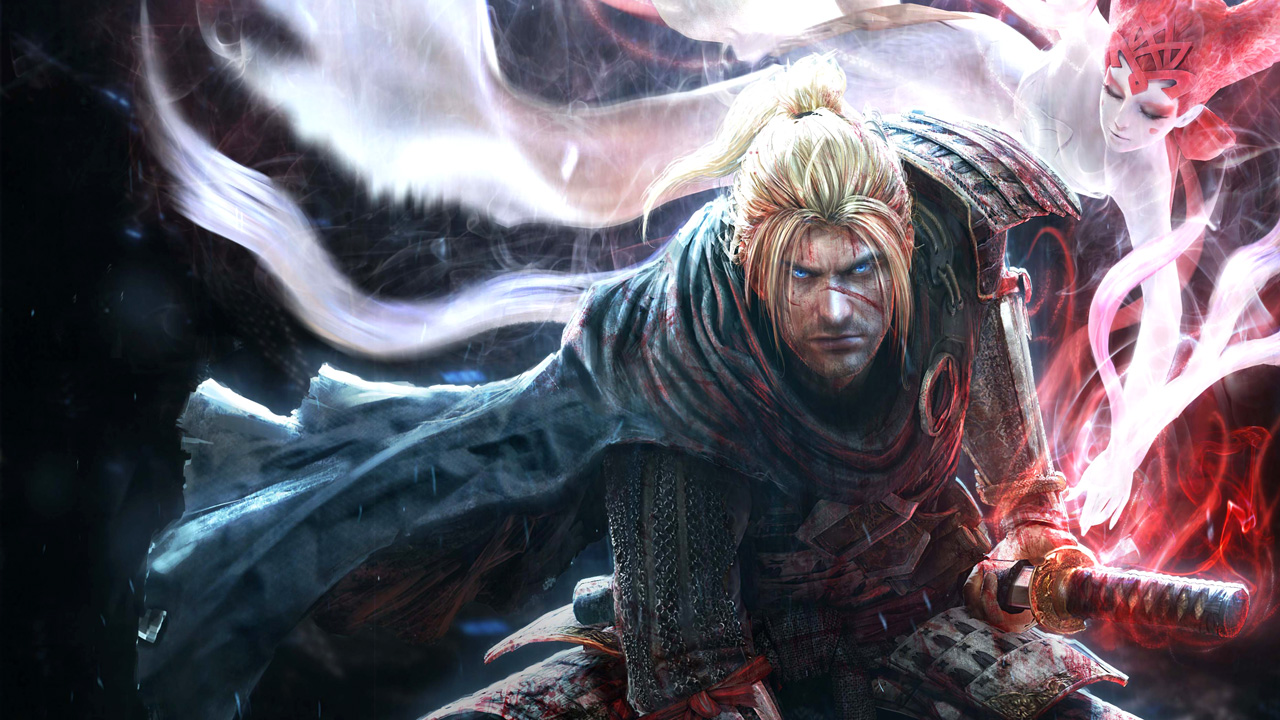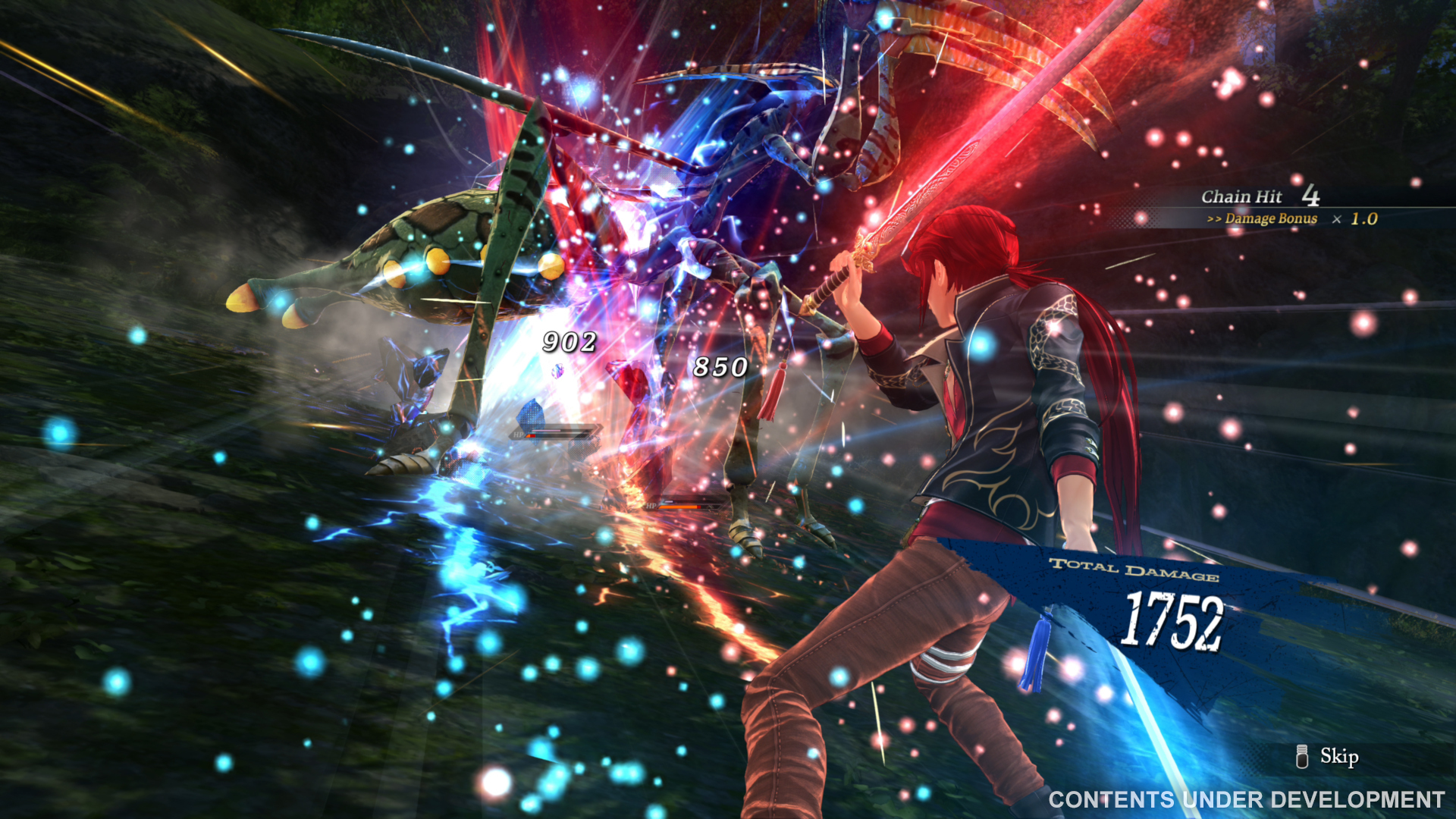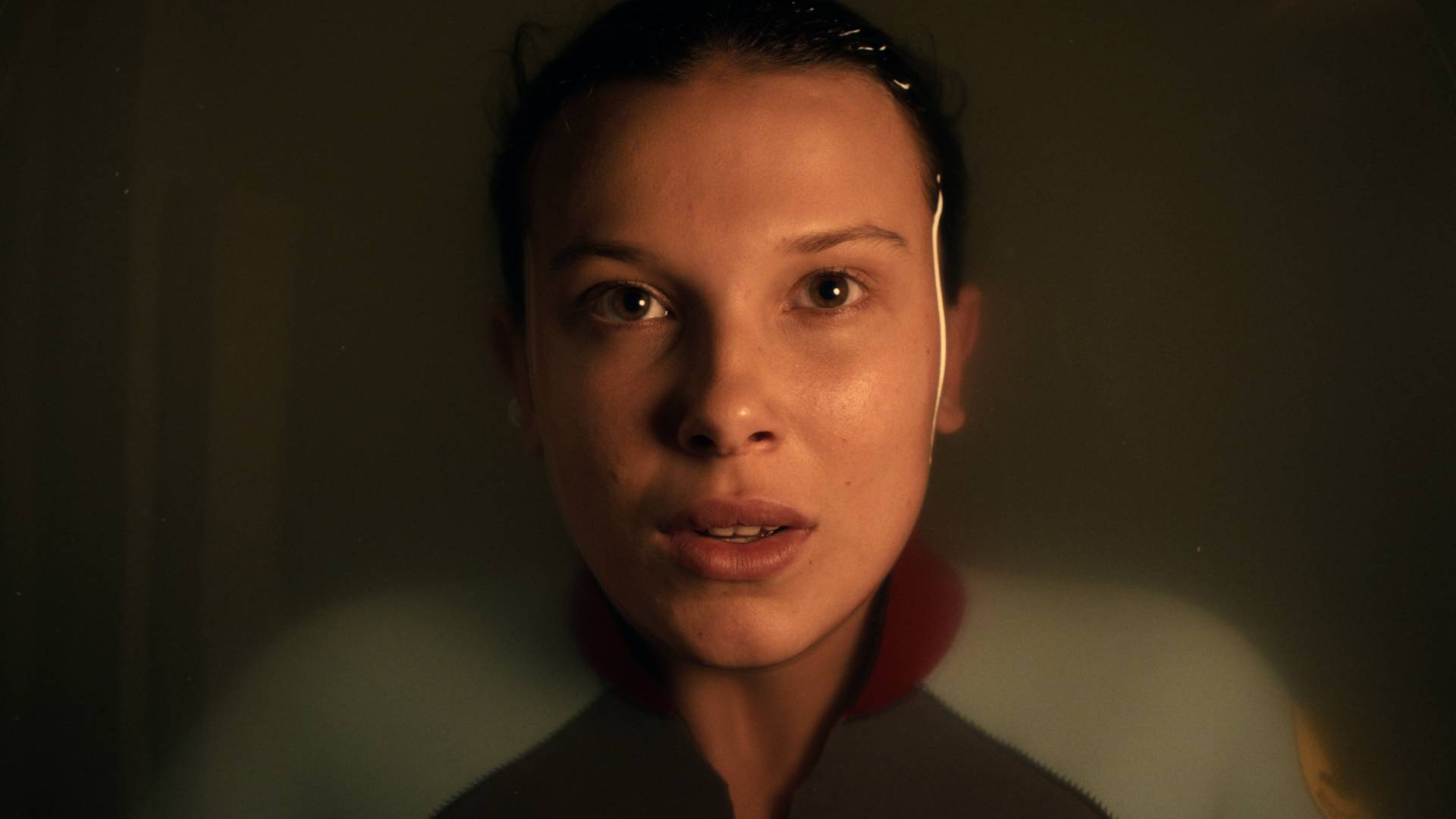GamesRadar+ Verdict
Though it doesn't outshine Dark Souls, Nioh's distinctly Japanese setting, thoughtful level design, and demanding difficulty lead to some supremely satisfying payoffs.
Pros
- +
A unique take on the hardcore action RPG
- +
Satisfyingly speedy combat
- +
Clever, shortcut-laden stage designs
Cons
- -
Extra complexity doesn't add much
- -
Reused levels are a bummer
- -
Severely limited online play
Why you can trust GamesRadar+
The hook of Nioh (and the Dark Souls games it's clearly modeled on) is the recurring sensation that you've leveled up as a player. New gear and raised stats will only take you so far, because this brand of action RPG is all about learning through experience, and doggedly persisting until you've finally overcome a great challenge - only to jump right into the next. If you're willing to fail a few (or, more likely, many) times in the face of hardship, Nioh will happily break you down to build you up, delivering a consistent, ultimately rewarding cycle of adversity and accomplishment. Its iterations on the proven Souls formula aren't always for the better, but this demanding, PS4-exclusive hack-'n'-slash offers a great time for the more masochistic among us.
Instead of Western-flavored high fantasy, Nioh takes place during the dawn of the Edo period in 17th-century Japan, featuring real-life historical figures who were evidently warring against hordes of demonic ghouls called Yokai with the help of their animal Guardian Spirits (something most textbooks fail to mention). You play as William, a white guy samurai with an Irish accent and a striking resemblance to The Witcher's Geralt, who finds himself caught up in a web of political intrigue after a hooded wizard takes his fairy-like protector Saoirse captive to hoard a bunch of Amrita (Nioh's equivalent of souls). You likely won't be buying Nioh for its story, but despite how confusing or silly the plot and plentiful cutscenes may get, there's a lot of hokey charm in watching ancient Japanese leaders and their poltergeist pets all team up like the Samurai Avengers. It's also pleasant to hear every character speaking in their native tongue, which includes the dying words sputtered by the item-pinata corpses of NPCs you'll find scattered throughout each area.
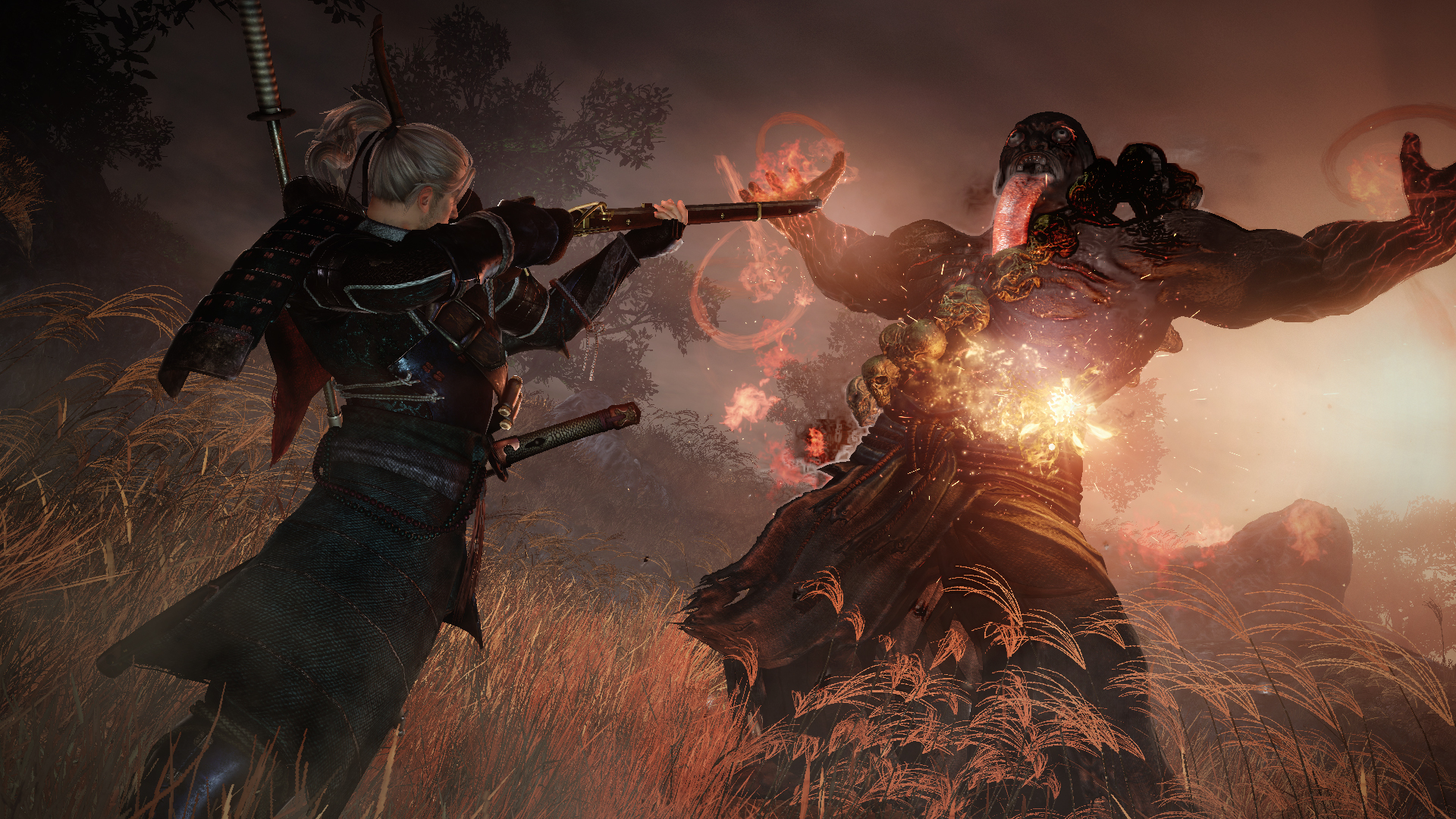
What you're really here for is the treacherous world that fuels Nioh's gameplay, where exploration is as essential as it is life-threatening, and your success in the fast-paced, third-person combat is dictated by sharp reflexes mixed with cautious meter management. The Ki resource sitting beneath William's health bar mimics the Soulsborne stamina bar that depletes with every attack, with a key (sorry) difference: tapping R1 with pinpoint timing will refund a huge chunk of your expended energy. As if that weren't enough to keep track of during fights against baddies that can cut you down in three seconds if you're not careful, every weapon type has High, Mid, and Low stances (each with their own unique attacks and combos) which you can switch by pressing R1 plus a face button. Imagine Bloodborne's transforming weapons mixed with Gears of War's active reload system, plus an extra layer of complexity. It's a lot to grapple with, even if you have experience with the methodical, nail-biting nature of Souls combat.
Yet for better or worse, working to master the intricacies of Nioh's combat system is never really necessary. All five weapon types have a satisfyingly unique mix of attacks and special moves, but you'll quickly find one or two you favor and use them repeatedly as your go-to offense, without the need to constantly switch stances and maximize your options. Replenishing your Ki with perfect timing is also needed to dispel Yokai Realms, patches of cursed earth that dampen your stamina regeneration - a debilitating, often frustrating effect that's baked into most boss fights. They say if it ain't broke, don't fix it, so this overcomplicated take on Souls' time-honored combat doesn't feel as additive as it should. There is one exception: the ranged weaponry, which you can actually aim using a behind-the-back camera angle and reticle. This extra degree of control does wonders for making bow and rifle use more effective, and it's immensely satisfying when you line up a lethal headshot on a bandit or Yokai from across a spacious temple courtyard.
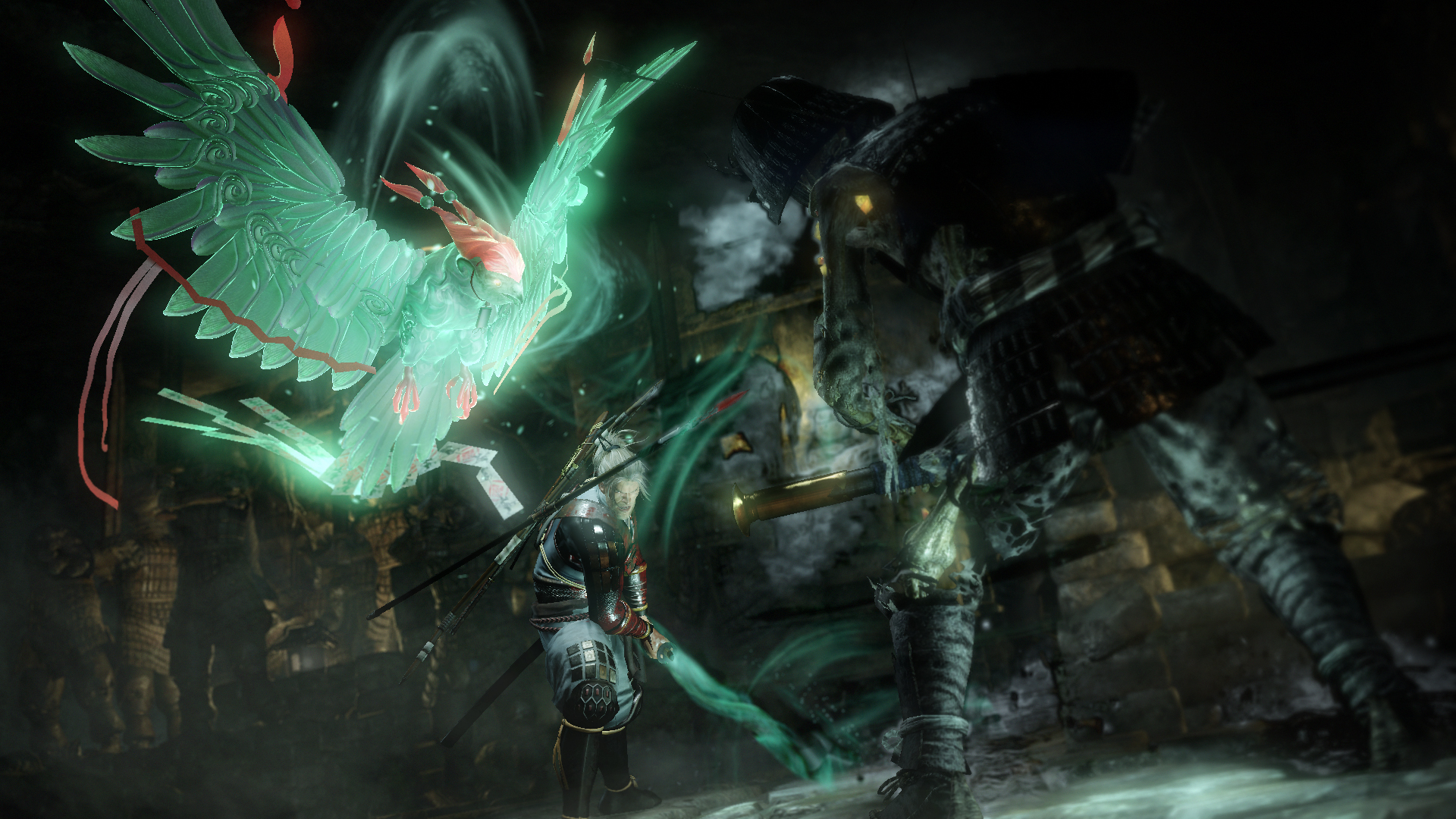
The other major difference is the world itself: Nioh is broken up into individual missions that drop you into standalone levels, rather than one giant, interconnected realm. These areas are still relatively large, beautiful to look at, and satisfying to explore, with their smart use of progress-retaining shortcuts between the health-recovering, enemy-respawning shrines. Despite all the deathtraps and ambushes waiting around every other corner, there's lot of incentive to explore and find a path to the next I-don't-know-what shimmering in the distance. Nioh's enemy and item placement all feels very deliberate and rewarding, to be sure - but you never get that awe-inspiring sense of scale you would from a Souls game, where you suddenly find yourself standing in a spot you remember glimpsing in the distance all those hours ago.
It's also a shame that level templates get reused for multiple missions, with remixed monster placement and blocked pathways to help stave off some monotony (though it's always a bit underwhelming to find yourself dropped into some place you've already been). The silver lining is that the mission structure segments Nioh's challenging campaign into manageable chunks that last roughly an hour each, and many Side Missions use your familiarity with the stage to play tricks on your expectations. For those willing to churn through rehashes of previous settings, the Side Missions (and ultra-hard Twilight Missions) add a ton of extra playtime, even if their rewards are typically unexciting and the encounters pull from a relatively limited pool of enemy types.
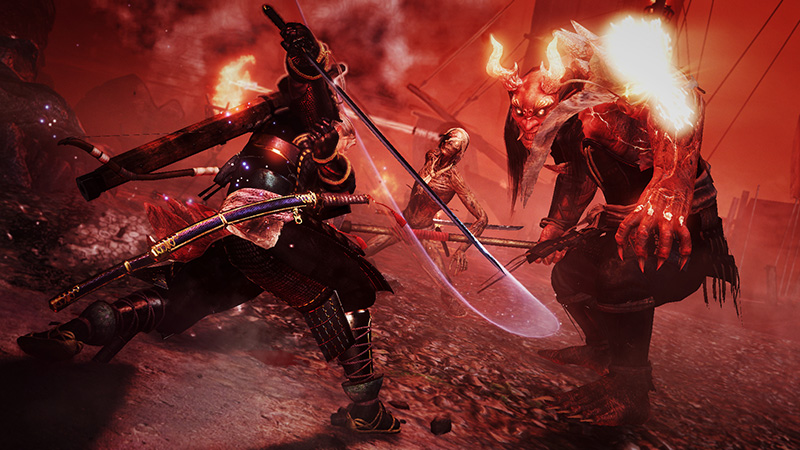
At launch, Nioh's multiplayer is far from the gold Souls standard. You'll spot ominous graves where other players have perished, but there aren't any humorous ghost replays of how these heroes died or user-crafted messages warning/trolling others. Instead, interacting with a grave summons a Revenant: AI-controlled shades of the slain player that have a chance to drop whatever gear they were wearing when they died. Though it's a nifty idea, fighting these Revenants is more trouble than it's worth, what with how often gear upgrades crop up naturally, and the fact that Glory rewarded from these kills only feeds into a half-baked Clan war system online (which doesn't come close to replacing the nuanced brilliance of Souls' Covenants). Co-op play with your friends is limited to missions both players have completed, which makes it impossible to recruit a skilled pal for help taking down a troublesome boss, and true PvP will only exist when it's added in a later patch.
Weekly digests, tales from the communities you love, and more
But for all the ways Nioh falls short of the series it's so closely imitating, it's still rife with moments of personal glory, where you can almost feel your skills evolving in real time. After you've got to grips with the minutiae of the overly complex combat, you'll be busting out flashy combos worthy of a true samurai, and easily slaying enemies that used to make you cower in fear. Every time you read the words "Freed from this mortal coil" - Nioh's version of "You died" - it just makes it all the sweeter when you finally break through what formerly felt like a brick wall of difficulty. For those seeking to test their action RPG skills, Nioh is a worthwhile challenge just waiting to be overcome.
More info
| Genre | Action RPG |

Lucas Sullivan is the former US Managing Editor of GamesRadar+. Lucas spent seven years working for GR, starting as an Associate Editor in 2012 before climbing the ranks. He left us in 2019 to pursue a career path on the other side of the fence, joining 2K Games as a Global Content Manager. Lucas doesn't get to write about games like Borderlands and Mafia anymore, but he does get to help make and market them.
